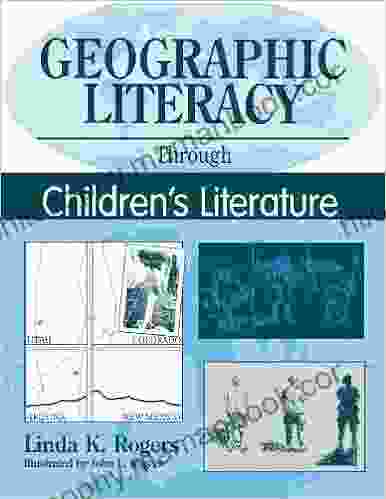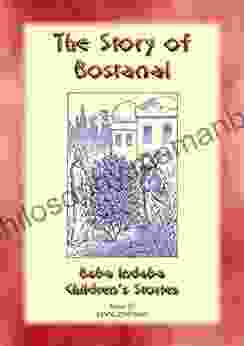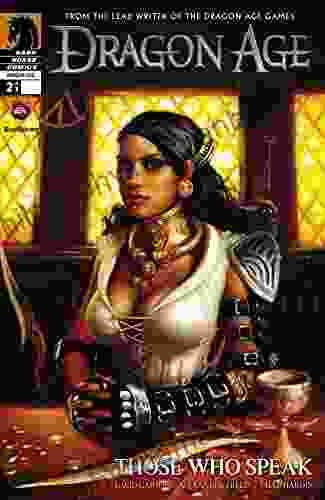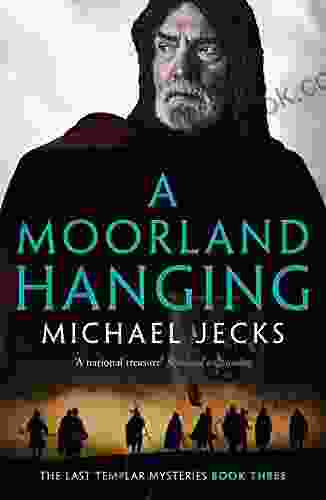Enhancing Geographic Literacy Through the Enchanting World of Children's Literature: A Comprehensive Guide for Educators, Parents, and Aspiring Young Explorers

In the ever-interconnected world we inhabit today, geographic literacy has become an indispensable skill for navigating the complexities of our global society. By fostering an understanding of the relationships between people, places, and environments, geographic literacy empowers individuals to make informed decisions, appreciate diverse cultures, and contribute meaningfully to the world around them.
For young minds, the journey towards geographic literacy begins with a spark of curiosity and a sense of wonder. Children's literature, with its captivating stories, vivid illustrations, and interactive elements, holds immense potential to ignite this spark and nurture a lifelong passion for geography.
4.7 out of 5
| Language | : | English |
| File size | : | 3452 KB |
| Text-to-Speech | : | Enabled |
| Screen Reader | : | Supported |
| Word Wise | : | Enabled |
| Print length | : | 161 pages |
This comprehensive guide will delve into the transformative role of children's literature in enhancing geographic literacy. Through an exploration of effective storytelling techniques, the importance of maps and visual aids, and engaging hands-on activities, we will provide educators, parents, and aspiring young explorers with invaluable insights and practical strategies to foster geographic literacy in the hearts and minds of children.
Storytelling: A Journey of Discovery
At the heart of children's literature lies the power of storytelling. When a story unfolds, it transports children to distant lands, introduces them to diverse cultures, and immerses them in the wonders of the natural world.
The Magic of Fiction
Fictional stories can whisk children away on extraordinary adventures, allowing them to experience different environments and perspectives firsthand. From the enchanting forests of J.R.R. Tolkien's Middle-earth to the bustling streets of Beverly Cleary's Ramona Quimby's neighborhood, fiction opens up a world of possibilities where children can explore geographical concepts such as location, distance, and the impact of human activities on the environment.
The Value of Non-Fiction
Non-fiction children's books provide a rich source of factual information, captivating young readers with real-world stories of exploration, discovery, and the wonders of the natural world. Biographies of famous geographers and explorers, such as Marco Polo or Jane Goodall, can inspire children to dream big and pursue their own passions. Books about different cultures and traditions offer insights into diverse ways of life, promoting understanding and empathy.
Interactive Storytelling
Interactive elements, such as pop-up books, augmented reality apps, and online games, can bring stories to life and make geographic concepts more tangible and engaging for children. Interactive maps, for instance, allow them to explore different regions, zoom in on specific locations, and discover hidden details.
Maps: Visualizing the World
Maps are essential tools for understanding the spatial relationships between places and environments. By introducing children to maps at a young age, we can help them develop a strong sense of direction and an appreciation for the diversity of the world around them.
Decoding Maps
Children's literature provides ample opportunities to introduce maps and teach children how to decode them. Picture books with simple maps can help preschoolers understand basic concepts like symbols, scale, and cardinal directions. As children grow older, they can explore more complex maps, learning about different projections, physical features, and political boundaries.
Interactive Maps
Interactive maps, such as those found in online resources or educational apps, allow children to engage with maps in a dynamic way. They can zoom in and out, pan across different regions, and uncover layers of information, making the learning process more engaging and meaningful.
Creating Maps
Creating their own maps is a powerful way for children to internalize geographic concepts and develop their spatial reasoning skills. Encourage them to create maps of their neighborhood, favorite park, or imaginary world, using symbols and colors to represent different features. This hands-on activity fosters creativity, critical thinking, and a deeper understanding of the world around them.
Hands-On Activities: Exploring Geography in Action
Beyond storytelling and maps, hands-on activities provide a tactile and engaging way for children to explore geographic concepts. These activities can range from simple experiments to outdoor excursions, fostering a love for geography that extends beyond the classroom or library.
The World in a Jar
A "world in a jar" activity is a fun and educational way for children to learn about different biomes and ecological regions. By layering soil, water, and plants in a clear jar, they can observe how different organisms interact within a closed ecosystem.
Globe Scavenger Hunt
A globe scavenger hunt can be a thrilling adventure that teaches children about different countries, continents, and oceans. Hide clues around the house or classroom, requiring children to use a globe to find the answers. This activity promotes problem-solving skills and encourages children to explore the world in a playful and interactive way.
Field Trips
Field trips provide an invaluable opportunity for children to experience geography firsthand. Visit local museums to learn about the history and culture of their region. Explore nature trails to discover different habitats and plant species. Engage with local businesses to learn about the economic activities and industries that shape their community.
Assessment and Evaluation
As children progress in their geographic literacy journey, it is important to assess their understanding and provide feedback to support their continued growth.
Informal Assessment
Informal assessment can be integrated into daily interactions and activities. Observe children's conversations, ask them questions about stories they have read or maps they have created, and encourage them to share their geographic knowledge with others.
Formal Assessment
Formal assessment, such as quizzes or projects, can provide more structured evaluations of children's geographic literacy. Quizzes can test their knowledge of specific geographic concepts, such as cardinal directions or latitude and longitude. Projects, such as creating a travel brochure or designing a sustainable community, allow children to demonstrate their understanding of geographic principles and apply their skills in a creative way.
Geographic literacy is a vital skill that empowers children to navigate the complex and interconnected world we inhabit today. Through the enchanting world of children's literature, maps, and interactive activities, we can ignite a passion for geography in young minds, fostering a lifelong love of learning and a deep appreciation for the diversity of our planet.
By engaging with the resources and strategies outlined in this comprehensive guide, educators, parents, and aspiring young explorers can empower children with the knowledge, skills, and enthusiasm they need to become informed, globally aware, and responsible citizens of the world.
In the words of the renowned geographer Yi-Fu Tuan, "The world is too vast and complex to be understood all at once, but it is also too fascinating to be ignored." Let us embrace the challenge of fostering geographic literacy in our children, empowering them to explore the wonders of our planet, embrace diversity, and shape a more just and sustainable future for all.
4.7 out of 5
| Language | : | English |
| File size | : | 3452 KB |
| Text-to-Speech | : | Enabled |
| Screen Reader | : | Supported |
| Word Wise | : | Enabled |
| Print length | : | 161 pages |
Do you want to contribute by writing guest posts on this blog?
Please contact us and send us a resume of previous articles that you have written.
 Top Book
Top Book Novel
Novel Fiction
Fiction Nonfiction
Nonfiction Literature
Literature Paperback
Paperback Hardcover
Hardcover E-book
E-book Audiobook
Audiobook Bestseller
Bestseller Classic
Classic Mystery
Mystery Thriller
Thriller Romance
Romance Fantasy
Fantasy Science Fiction
Science Fiction Biography
Biography Memoir
Memoir Autobiography
Autobiography Poetry
Poetry Drama
Drama Historical Fiction
Historical Fiction Self-help
Self-help Young Adult
Young Adult Childrens Books
Childrens Books Graphic Novel
Graphic Novel Anthology
Anthology Series
Series Encyclopedia
Encyclopedia Reference
Reference Guidebook
Guidebook Textbook
Textbook Workbook
Workbook Journal
Journal Diary
Diary Manuscript
Manuscript Folio
Folio Pulp Fiction
Pulp Fiction Short Stories
Short Stories Fairy Tales
Fairy Tales Fables
Fables Mythology
Mythology Philosophy
Philosophy Religion
Religion Spirituality
Spirituality Essays
Essays Critique
Critique Commentary
Commentary Glossary
Glossary Bibliography
Bibliography Index
Index Table of Contents
Table of Contents Preface
Preface Introduction
Introduction Foreword
Foreword Afterword
Afterword Appendices
Appendices Annotations
Annotations Footnotes
Footnotes Epilogue
Epilogue Prologue
Prologue Bobby D Lux
Bobby D Lux Stephanie Sabol
Stephanie Sabol Timothy Egan
Timothy Egan Michael Gurian
Michael Gurian Marjorie E Scaffa
Marjorie E Scaffa Flavio Augusto
Flavio Augusto Fiona Sampson
Fiona Sampson Dancing Dolphin Patterns
Dancing Dolphin Patterns D E Moreau
D E Moreau David H Fears
David H Fears Chetan Bhagat
Chetan Bhagat Eric Johnson
Eric Johnson J D Vance
J D Vance Jeffrey D Wilhelm
Jeffrey D Wilhelm Deborrah Himsel
Deborrah Himsel Tony Gaddis
Tony Gaddis Bob Herz
Bob Herz Shelley Puhak
Shelley Puhak Agustina Bazterrica
Agustina Bazterrica Agnolo Firenzuola
Agnolo Firenzuola
Light bulbAdvertise smarter! Our strategic ad space ensures maximum exposure. Reserve your spot today!

 Cruz SimmonsThe Benefits of Learning Finance Early: A Comprehensive Guide to Financial...
Cruz SimmonsThe Benefits of Learning Finance Early: A Comprehensive Guide to Financial...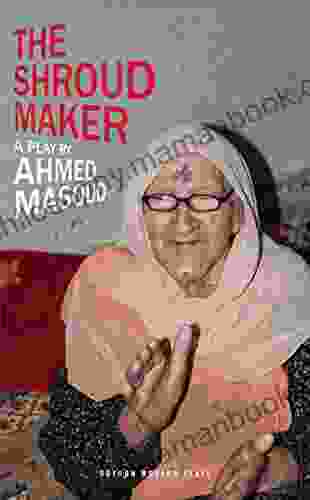
 Ivan TurgenevThe Shroud Maker: A Masterful Exploration of Grief, Memory, and the Creation...
Ivan TurgenevThe Shroud Maker: A Masterful Exploration of Grief, Memory, and the Creation... Brayden ReedFollow ·19.7k
Brayden ReedFollow ·19.7k Junot DíazFollow ·19.9k
Junot DíazFollow ·19.9k Ignacio HayesFollow ·11.5k
Ignacio HayesFollow ·11.5k Robert FrostFollow ·14.6k
Robert FrostFollow ·14.6k George MartinFollow ·10.9k
George MartinFollow ·10.9k Gabriel HayesFollow ·10.2k
Gabriel HayesFollow ·10.2k Timothy WardFollow ·7.7k
Timothy WardFollow ·7.7k Richard AdamsFollow ·2.1k
Richard AdamsFollow ·2.1k
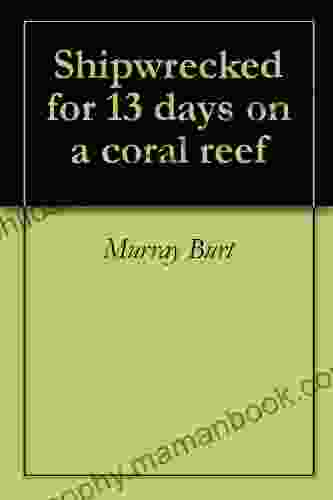
 Ignacio Hayes
Ignacio HayesShipwrecked For 13 Days On Coral Reef: A Tale of Survival...
In the vast expanse of the...

 Gerald Parker
Gerald ParkerWhere the World Is Quiet: Delving into a Realm of Serene...
A Tapestry of Serenity In the tapestry...

 Charles Bukowski
Charles BukowskiPloughshares Winter 2009: Guest Edited by Tony Hoagland
Ploughshares...

 Rubén Darío
Rubén DaríoAnthology of Massachusetts Poets: William Stanley...
William Stanley...
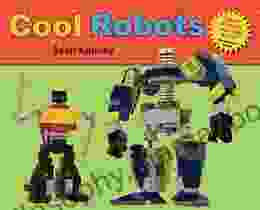
 Jason Hayes
Jason HayesSean Kenney's Mesmerizing Robot Masterpieces: A Journey...
In a realm where imagination meets...

 Terence Nelson
Terence NelsonUnveiling the Elite Force: The Commander Men of Hidden...
In the shadows of society, where justice...
4.7 out of 5
| Language | : | English |
| File size | : | 3452 KB |
| Text-to-Speech | : | Enabled |
| Screen Reader | : | Supported |
| Word Wise | : | Enabled |
| Print length | : | 161 pages |


